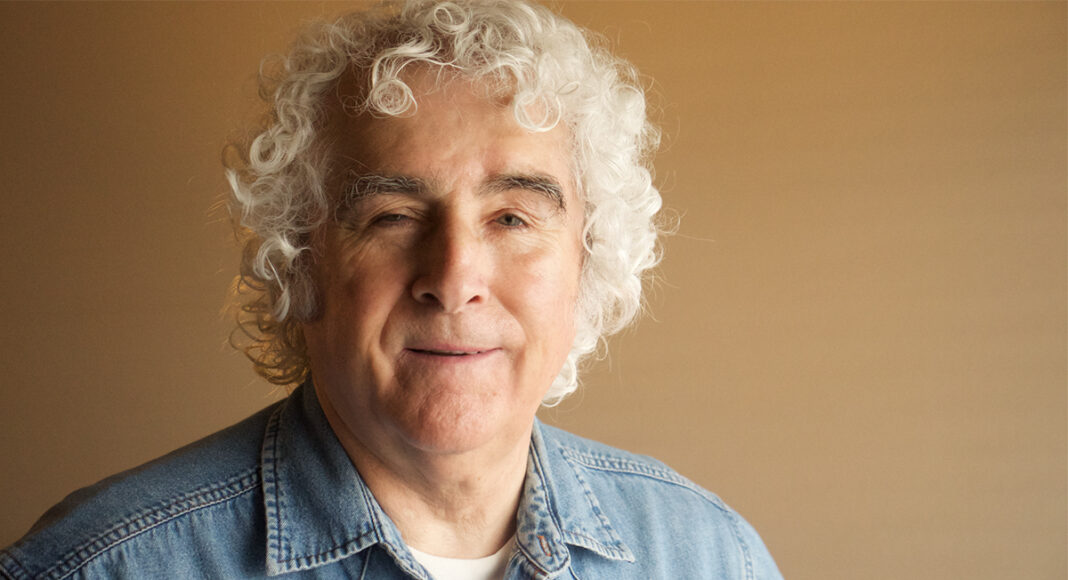[dropcap]M[/dropcap]any Americans would be surprised, ecstatic even, to see a project they worked on portrayed in a blockbuster film, but Santa Cruz attorney Daniel Sheehan is used to it. After working on both the Watergate and Pentagon Papers trials, among other endeavors, Sheehan is used to being in the front row of both history and Hollywood.
“There was also Tom Cruise’s American Made, about Iran-Contra, and Silkwood, another movie with Meryl Streep that Mike Nichols directed. We did that too,” recalls Sheehan, who is currently preparing for an August trial representing Dakota Access Pipeline water protectors in Standing Rock, and is also the founder and president of the Romero Institute, a Santa Cruz-based legal and public policy center descended from the Washington D.C. Christic Institute. “So watching those movies was a little surreal, too, but I’ve had this experience before.”
Sheehan’s latest courtside seat is for The Post, Steven Spielberg’s film spotlighting The Washington Post’s rise to journalistic glory in the Pentagon Papers case, which has earned Oscar nominations for Best Picture and for Meryl Streep’s performance as the Post’s publisher at the time, Katharine Graham.
At the time of the Pentagon Papers trial, Sheehan had recently graduated from Harvard Law School and worked for the Cahill-Gordon Law Firm, which represented the New York Times in the 1971 landmark First Amendment case showcased in The Post. He went on to work at famed Boston-based criminal defense attorney F. Lee Bailey’s firm, where he served as Special Counsel in the Watergate Burglary case two years later.
Though he watched the Pentagon Papers case unfold from the New York Times’ side, Sheehan says that there were some moments that he recalls quite differently than they were portrayed in the film.
“Remember in the movie where Katie Graham was allegedly sitting at the restaurant table with the New York Times editor when the legal counsel brought in the telegram demanding the New York Times stop publishing the documents?” Sheehan asks. “That actually came to my office from Whitney North Seymour, the United States Attorney for the Southern District of New York. So, there was that.”
The film’s critical acclaim suggests that the past and future fourth pillar of democracy is something worth not just upholding, but celebrating. Sheehan recalls the Richard Nixon presidency as “the halcyon days of investigative journalism,” and he got to tag along by representing the investigative journalists in court.
During his term, Nixon dubbed the media “the enemy.” He kept a White House enemies list with more than 50 journalists on it, and actively worked to avoid unplanned encounters with White House reporters. Nixon made great use of the television, which reached Americans more directly and cut out third-party reporters. The White House communications office and director position were also created under the Nixon administration.
“When people come to the office of the presidency and acquire executive power, they automatically and instinctively view the media as an adversary,” Sheehan says. “They soon realize that the news media tends to be out to criticize them and view themselves as having a role to criticize them.”
President Parallels
One subtext of The Post that has not gone unnoticed is the parallels it suggests between Nixon and Donald Trump, although Sheehan argues that Nixon was much less social and more self-conscious than Trump. According to CNN, Trump told former FBI Director James Comey to throw all journalists who publish government leaks in jail. He regularly tweets about fake news and makes comments about dishonest media and the “failing New York Times,” and has said that the press is the “enemy of the American people.” Trump also opted to host his fake news awards earlier this year, in which the Times took first place, with ABC and CNN taking silver and bronze.
“There is a tendency to compare Nixon and Trump, and Trump will play right into it,” Sheehan says. “He will become more and more reclusive and cut himself off from places that will ask him questions. This tendency to compare Trump and Nixon will increase and increase, and it’s an effort on the part of the media to lobby on behalf of him getting impeached.”
Sheehan explains that while Nixon besieged the press, he was also conspiring with the enemy overseas. When Nixon was running for reelection in 1968 against Hubert Humphrey, he communicated with the North Vietnamese and conspired to enter into a war settlement with Johnson so that once he was elected, he would be credited with ending the war. As recently evidenced by a cache of notes left by H. R. Haldeman, Nixon’s White House Chief of Staff, Nixon sabotaged Johnson’s peace efforts so that once elected, he could take credit for it. Sheehan says that this practice of enemy communication and negotiation continued beyond Nixon, into the Reagan and Bush administrations, and the current allegations of Trump-Russia collusion.
“The Post is reflective of this spirit of investigative journalism, but it also demonstrates the conflict of interest that exists on the highest levels of the major news media with the national security state infrastructure,” Sheehan says. “They are all part of the same social clubs, they all went to the same private schools and colleges together. That’s the major challenge always present for anybody that wants to be an investigative journalist. They are going to run right into their board of editors who will tell them to stop investigating.”
The Post explores this theme via the realizations that Graham and Post editor Ben Bradlee (played by Tom Hanks) must face about how their friendships and social entanglements with Washington’s elite compromise their ability to report on those same politicos. While the film suggests a new consciousness on the part of the press at that time, the truth is that conflicts of interest within the media aren’t uncommon in national politics even today; for example, ABC News President Ben Sherwood is the brother of Elizabeth Sherwood-Randall, who was a top national security adviser to Barack Obama, and CNN’s Washington Deputy Bureau Chief Virginia Moseley is married to Tom Nides, the former deputy Secretary of State under Hillary Clinton.
Ultimately, reporting on the Watergate scandal by Bob Woodward and Carl Bernstein eventually led to Nixon’s resignation—considered one of the largest investigative journalist victories ever. It’s possible that the current president’s war on the press could end in a similar fashion, Sheehan says.
“The entire establishment has locked arms and decide that they are going to plow this guy under,” he says. “This is an extraordinarily important and positive time for investigative journalism. I am just pleased as punch to watch it all happening.”














Danny Sheehan is a national treasure, fearless, funny, and with an efficacy in his actions for the greater good that will blow your mind. Read his book!!